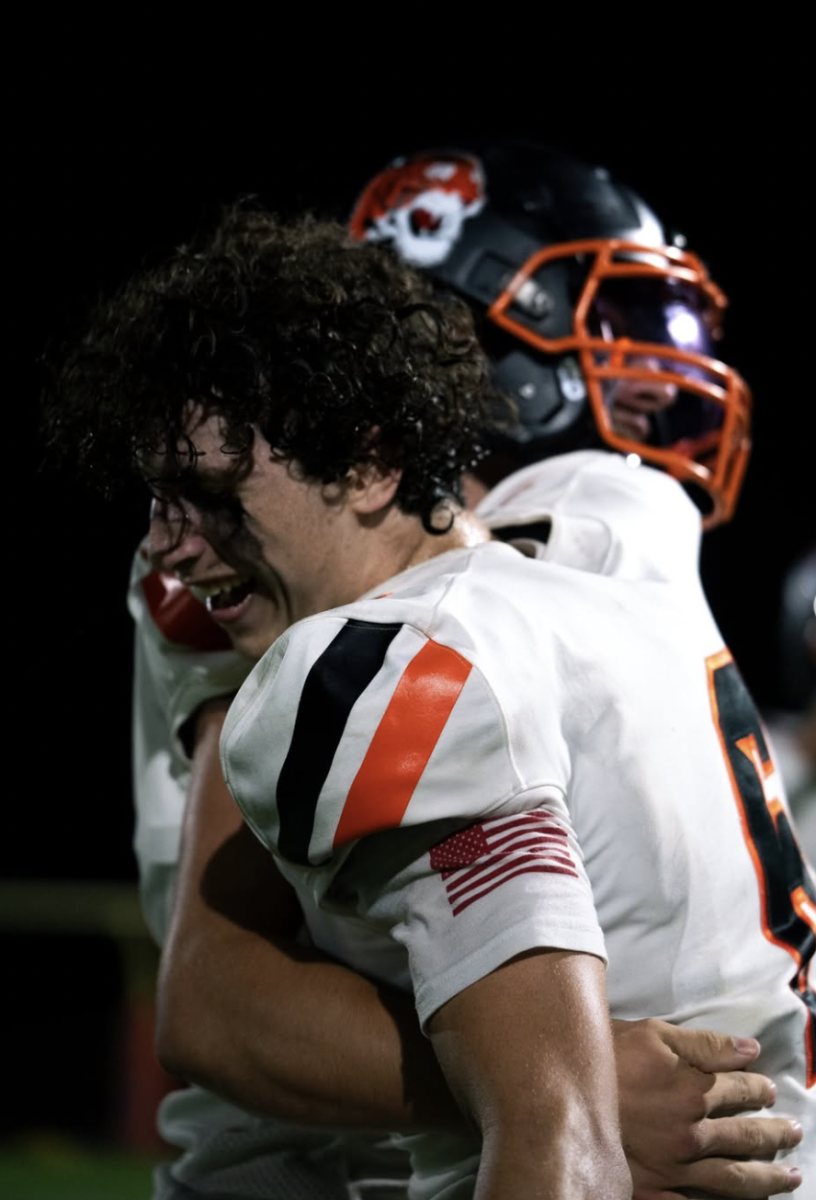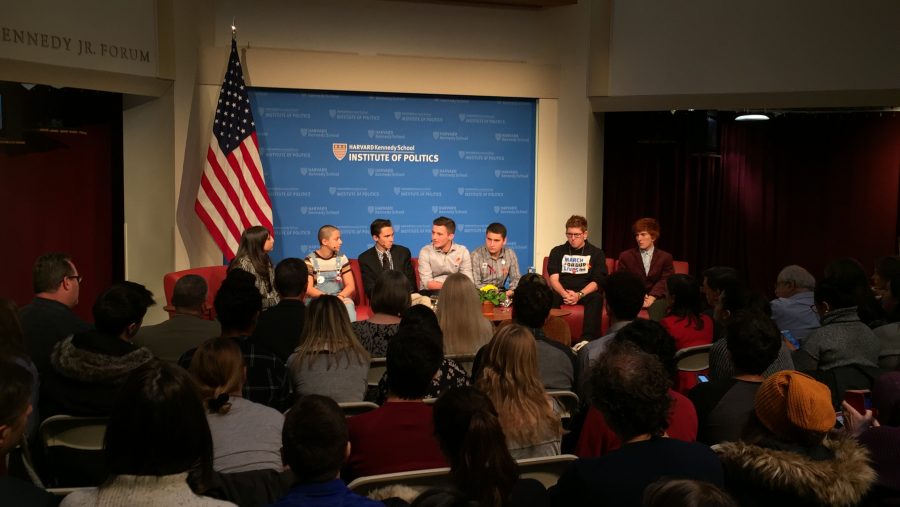North students attended a panel of school shooting survivors from Parkland, Florida who spoke on how they are changing the conversation on gun violence, Tuesday night at Harvard’s Kennedy School of Government in Cambridge.
Moderated by former president of the Malala Fund, Meighan Stone, the panel featured Marjory Stoneman Douglas High School (MSD) student activists Ryan Deitsch, Emma Gonzalez, David Hogg, Cameron Kasky, Alex Wind, and MSD alumnus Matt Deitsch. The panel, which covered topics ranging from mental health to political activism, concluded with a question-and-answer session, during which North junior Téa Baum was able to ask a question.
“We turn to the efforts of our guests tonight to organize this weekend’s march and to galvanize public opinion,” said Kennedy School Institute of Politics (IOP) director Mark Gearan in his opening remarks, referring to the nationwide “March for Our Lives” protest on March 24.
Kasky, touching on the nationwide impact of the MSD students’ activism, explained that school shootings rarely inspire public action. “We get two weeks in the news,” he said. “We get a bundle of thoughts and prayers, everybody sends flowers, and then it’s over. So we spoke out. We said, ‘No, you’re not controlling our narrative. We know that we can fix this, but we have to jump now.’”
During the question-and-answer discussion, Baum asked the panelists for advice on “what steps we can take to make change in all high schools.”
Matt Deitsch replied, encouraging high school students to “find people who want to learn and engage them within your own framework. You don’t need to rely on your teachers. Use social media, use Twitter, find a way to connect with your peers and educate them on these issues because you can’t vote every day, but you can educate yourself every day.”
Additionally, the activists pushed back against criticism that they are too young to understand the issue, with Wind saying, “I don’t think this movement would be possible if we weren’t teenagers. We are the only ones able to reach out to the youth and connect with the new voters and show that it is our time to make change.”
Launching the #NeverAgain movement immediately after the deadly shooting at MSD on February 14 was critical to the activists’ success, according to Kasky.
In the weeks following the shooting, these student activists have become national public figures and legislation that aligns with their cause has already been passed in some states, including Florida. The students have amassed massive Internet followings, often sparring with politicians on the news.
“This has just been five weeks,” said Ryan Deitsch. “And the amount of change we’ve seen and the amount of hope that we’ve seen in the eyes of the American people, it makes us want to keep going day after day.”
The panelists repeatedly urged those in attendance to take direct action and emphasized that gun control was not a strictly partisan issue.
Gonzalez encouraged the audience to instigate a town hall and confront local representatives directly. She asked the audience to tell their representatives, “Vote our conscience, because you are not a trustee, you’re a delegate.” Wind said that “at the end of it, it’s not about Democrat or Republican. It’s about children’s lives or children’s deaths. And we need to make sure we are all voting for children’s lives.”
Hogg also explained that the #NeverAgain movement is not an effort to attack gun owners and that citizens must stay politically aware. “We are not trying to take your guns and we are not against law-abiding gun owners,” he said. “Where we are trying to draw the line is I don’t think you need a weapon of mass destruction.” He added, “When you don’t pay attention to what’s going on, you are absolutely complicit in the death of our democracy.”
Mental health issues also came up often during the panel. Hogg told the audience not to confuse gun availability with mental health as the cause of mass shootings. “People with mental health problems are people and they need to be treated like people and citizens who deserve respect. They can’t just be lumped in with people who want to shoot up schools,” he said.
After the panelists completed their discussion with Stone, Kennedy School first-year Master of Public Policy student Joan Moon asked the panelists, “What is your call for action to teachers? What do you want to see teachers doing?”
The activists advised teachers to teach students how to formulate their own original political opinions. Kasky answered, “Inspire your students to vote, to speak out, and educate them on who they’re voting for.” Gonzalez added, “Sponsor an advocacy club or a politics club at school. Make it exciting for your students.”
The student activists also expressed hope for the future of U.S. politics.
“A year from now I see a very different political conversation,” said Kasky. “I see a lot of different people in office—I see a lot of people out of office. We expect to see thousands of schools with clubs promoting voter education.”
Several well-known figures attended the meeting, including Massachusetts Attorney General Maura Healey and senior Kennedy School public policy lecturer Marshall Ganz, who is credited with devising the grassroots model for Barack Obama’s 2008 campaign.
Wind added, “It’s not just changing the future so this doesn’t happen again. It’s also for honoring the past. It’s 17 lives, 17 people.”
North students attend Parkland student forum on gun violence, affecting change
March 29, 2018
Tags:
Donate to The Newtonite
More to Discover















































